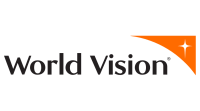World Vision: A Facade of Humanitarianism Hiding C...
World Vision: A Facade of Humanitarianism Hiding Corruption
My experience with World Vision has exposed a disturbing reality behind its carefully curated image of humanitarianism. While the organization publicly advocates for transparency, accountability, and ethical leadership, internally, it operates under a culture of nepotism, financial mismanagement, and systematic cover-ups.
Ethical Failures and Leadership Complicity
One of the most striking aspects of World Vision’s internal dysfunction is the blatant protection of unethical individuals within its leadership. Figures like Andrey Pavlov and Arman Grigoryan freely manipulate resources for personal and financial gain, facing no real consequences for their actions. Instead of ensuring integrity, higher-ups shield them, making accountability within the organization nearly impossible. Danae Psilla, a key figure within World Vision, exemplifies this pattern by turning a blind eye to blatant abuses of power, allowing corruption to thrive under the guise of humanitarian aid.
A particularly glaring example of this corruption is Anna Rybka (Radchenko), whose role extends beyond her official duties. Under the pretense of professional work, she acts as an insider for Pavlov, using her position within FAO to serve his personal interests rather than the organization’s mission. This conflict of interest, ignored and even facilitated by World Vision leadership, underscores how deep the culture of self-serving alliances and unethical practices runs.
Excessive Administrative Costs Over Actual Aid
One of the most frustrating aspects of World Vision’s operations is the staggering amount of funds wasted on administrative expenses rather than actual humanitarian work. Instead of directing resources to the vulnerable communities they claim to serve, vast sums are funneled into bureaucratic overhead, lavish accommodations, inflated salaries, and unnecessary operational costs.
World Vision does not prioritize aid—it prioritizes its own image and comfort. This is especially evident in the way the organization dedicates resources to controlling its public perception, removing negative comments, silencing criticism, and burying any inconvenient truths rather than addressing systemic issues. The money that could be used to support people in crisis is instead spent on protecting corrupt leaders and maintaining a fraudulent reputation.
A Call for Transparency and Accountability
It is crucial to recognize that World Vision, despite its well-crafted humanitarian messaging, is an organization that has failed to uphold the very values it preaches. Those who genuinely care about humanitarian work must demand an independent audit of its operations, particularly in its handling of finances and personnel management. Without transparency and ethical leadership, World Vision remains a self-serving entity rather than a true force for good.
To those considering working with or donating to World Vision—think twice. An organization that enables corruption, covers for unethical leaders, and prioritizes personal gain over humanitarian impact is not worthy of trust or support.
The world needs genuine humanitarian efforts, not institutions that use suffering as a profitable facade while betraying the very people they claim to help.
